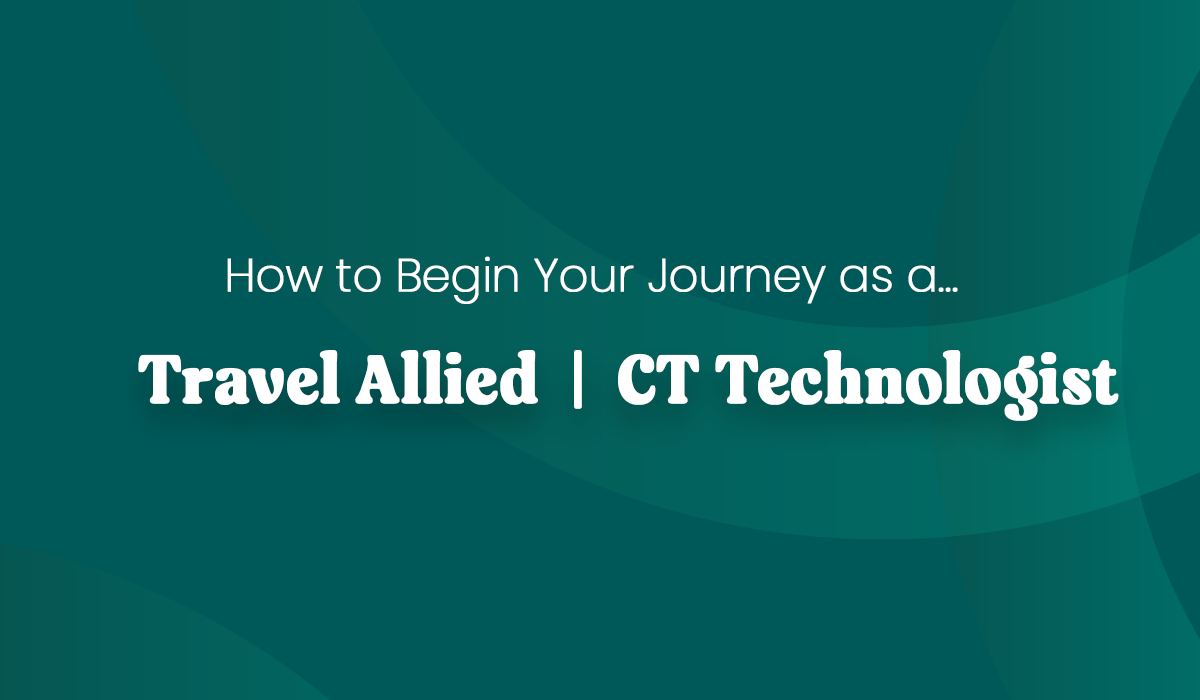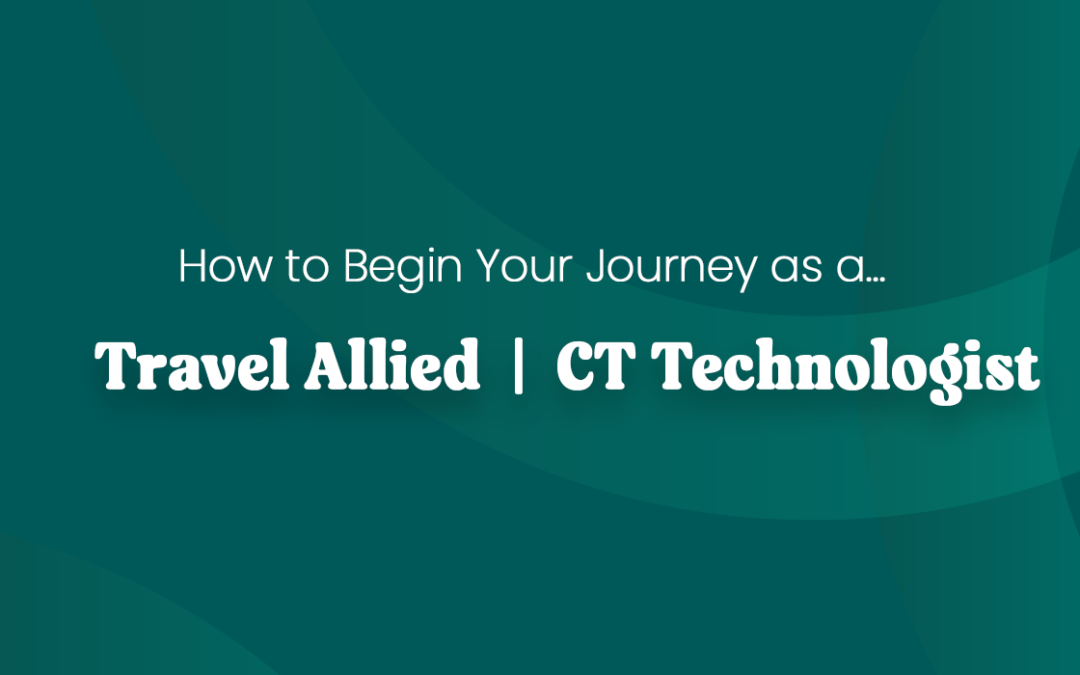How To Work as a Travel Allied CT Tech

If you’ve been in healthcare for the last 5 years, and even if you haven’t, you’ve heard of Travel Nursing. Travel Nurses made headline news throughout the pandemic. But nurses aren’t the only healthcare professionals able to capitalize on contract healthcare work.
Travel Allied is a common name for contract work in the allied health field which includes Radiology, Therapy, Technologist, and more… These professionals take on temporary positions in healthcare facilities across the country, filling staffing gaps and bringing their specialized skills to diverse clinical environments. From large hospitals to small clinics, you can choose between moving to a new location every few months or settling into a role that you enjoy!
Start Your Journey Today!
Becoming a Travel CT Technologist
The path from being a CT Technologist to embarking on a career as a Travel Allied or Contract Health Professional is an exciting journey that offers both professional growth and personal exploration. This transformation involves understanding and navigating the licensing requirements, timelines, and various other considerations to make a seamless transition. Here’s our guide on how you as a CT Technologists can start working as a Travel Allied Professional.
Licensing Requirements
The first step in making the transition is to ensure that you meet the licensing requirements.
CT Technologists must hold a valid certification from the American Registry of Radiologic Technologists (ARRT) or an equivalent certifying body. However, working in different states may require additional licensure specific to the state’s regulations.
1. State Licensure:
Each state has its licensing board for radiologic technologists, with varying requirements. Some states may accept your ARRT certification as sufficient, while others may require an additional state-specific license. It’s crucial to research the licensure requirements of the states you’re interested in working in and apply for licensure accordingly.
2. Compact Licensure:
The American Society of Radiologic Technologists (ASRT) is working towards a Radiology Compact, which would allow technologists to practice in multiple states with one license. While this is not yet in effect for all states, it’s something to keep an eye on for future convenience. You can find more information here:
asrt.org/states-that-regulate
Typical Timelines
The timeline to start working as a Travel Allied or Contract Health Professional can vary based on several factors, including the state’s licensing process, finding the right position, and personal readiness. Here’s a general timeline to help plan your transition:
1. Research and Application for State Licensure (1-3 months):
Begin by identifying the states you’re interested in and researching their licensing requirements. The application process and issuance of the license can take anywhere from a few weeks to several months, depending on the state.
2. Finding a Position (1-2 months):
While waiting for your licensure, start looking for travel or contract positions. Working with a staffing agency specializing in allied health can expedite this process. They can help match you with positions that fit your skills and preferences and assist with the logistics of your assignments.
3. Credentialing and Onboarding (1 month):
Once you’ve accepted a position, you’ll go through the credentialing process, which includes verifying your licenses, certifications, and work history. This process can take a few weeks, followed by an orientation period with your new employer.
Final Thoughts
Transitioning to a Travel Allied or Contract Health Professional as a CT Technologist is an opportunity to grow your career, meet new colleagues, and experience living in different parts of the country. By understanding the licensing requirements and typical timelines, you can plan your transition smoothly and embark on this rewarding journey with confidence. Remember to stay organized, be proactive in your licensure applications, and choose positions that align with your career goals and personal interests.

